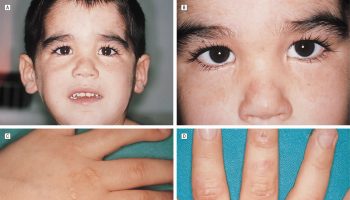Hypochondriac
Hypochondriac is an individual with hypochondriasis. Hypochondria also known as health anxiety, or illness anxiety disorder, or hypochondriasis, is a type of anxiety disorder of worrying excessively (preoccupation) that you are or may become seriously ill based on a misinterpretation of bodily symptoms 1. Hypochondriacs become unduly alarmed about any physical or psychological symptoms they detect, no matter how minor the symptom may be, and are convinced that they or others have, or are about to be diagnosed with, a serious illness.
It is normal for people to worry about their health now and again. But people who experience hypochondria get very worried that they are seriously ill, or are about to become seriously ill. This can occur even if they have no symptoms, or their symptoms are very mild. They might even mistake normal sensations for symptoms of a serious illness. For example, they might think: “What if I get cancer?” Because they consider themselves medically ill, individuals with hypochondriasis are usually encountered in medical rather than in mental health setting 2. Moreover, they show elevated rates of medical utilization by consulting multiple physicians for the same complaint and obtaining repeatedly negative diagnostic test results 3. They do that by manipulating the physicians to order them diagnostic tests and imaging studies. It was estimated that 10% to 20% of the US medical budget is spent on patients who somatize or have hypochondriacal concerns 4. Another important aspect of hypochondriasis is the potential harms that can happen to the patients by exposing themselves to unnecessary, extensive, and invasive imaging studies which increase their risk of adverse health events 5.
You may have no physical symptoms. Or you may believe that normal body sensations or minor symptoms are signs of severe illness, even though a thorough medical exam doesn’t reveal a serious medical condition.
You may experience extreme anxiety that body sensations, such as muscle twitching or fatigue, are associated with a specific, serious illness. This excessive anxiety — rather than the physical symptom itself — results in severe distress that can disrupt your life.
People with hypochondria can become so distressed and so anxious that they have trouble doing everyday things.
Significant health anxiety can cause real distress for the person, and reassurance isn’t always helpful. Sometimes, providing reassurance can make things worse. This can be frustrating and cause stress on families and relationships. Encourage your loved one to consider a mental health referral to learn ways to cope with hypochondriasis or illness anxiety disorder.
Hypochondria or illness anxiety disorder is a long-term condition that can fluctuate in severity. It may increase with age or during times of stress. But psychological counseling (psychotherapy) and sometimes medication can help ease your worries.
How long can hypochondria last?
Hypochondriasis or illness anxiety disorder may occur once, multiple times, or continuously. The first signs of it are usually seen in early to middle adulthood (ages 25-35), but can come on at any age. It can wax and wane in intensity, but rarely goes away completely.
Hypochondriasis causes
It is not clear why people have hypochondria or illness anxiety disorder, but these factors may play a role:
- Beliefs. You may have a difficult time tolerating uncertainty over uncomfortable or unusual body sensations. This could lead you to misinterpret that all body sensations are serious, so you search for evidence to confirm that you have a serious disease.
- Family. You may be more likely to have health anxiety if you had parents who worried too much about their own health or your health.
- Past experience. You may have had experience with serious illness in childhood, so physical sensations may be frightening to you.
Hypochondria or illness anxiety disorder it is more common in people who:
- have had major stress, illness or a death in the family
- were neglected or abused as a child
- have a serious physical illness
- have a mental health issue such as anxiety, depression, a compulsive disorder or a psychotic illness
- have a personality that tends to make everything seem worse than it is.
Certain activities can trigger an episode of serious concern in someone who is susceptible to hypochondriasis, including:
- reading about diseases on the internet
- watching something on television
- knowing someone with a serious medical condition
- feeling unwell or noticing lumps or bumps
Risk factors for hypochondriasis
Hypochondriasis or illness anxiety disorder usually begins in early or middle adulthood and may get worse with age. Often for older individuals, health-related anxiety may focus on the fear of losing their memory.
Risk factors for hypochondriasis or illness anxiety disorder may include:
- A time of major life stress
- Threat of a serious illness that turns out not to be serious
- History of abuse as a child
- A serious childhood illness or a parent with a serious illness
- Personality traits, such as having a tendency toward being a worrier
- Excessive health-related internet use
Hypochondriasis prevention
Little is known about how to prevent hypochondriasis or illness anxiety disorder, but these suggestions may help.
- If you have problems with anxiety, seek professional advice as soon as possible to help stop symptoms from getting worse and impairing your quality of life.
- Learn to recognize when you’re stressed and how this affects your body — and regularly practice stress management and relaxation techniques.
- Stick with your treatment plan to help prevent relapses or worsening of symptoms.
Hypochondriasis symptoms
Symptoms of hypochondriasis or illness anxiety disorder involve preoccupation with the idea that you’re seriously ill, based on normal body sensations (such as a noisy stomach) or minor signs (such as a minor rash). Signs and symptoms may include:
- Thinking a lot or being preoccupied with having or getting a serious disease or health condition
- Worrying that minor symptoms or body sensations mean you have a serious illness
- Being easily alarmed about your health status
- Seeing a doctor many times, but not accepting reassurances
- Seeking out lots of medical tests
- Finding little or no reassurance from doctor visits or negative test results
- Worrying excessively about a specific medical condition or your risk of developing a medical condition because it runs in your family
- Having so much distress about possible illnesses that it’s hard for you to function
- Repeatedly checking your body for signs of illness or disease
- Frequently making medical appointments for reassurance — or avoiding medical care for fear of being diagnosed with a serious illness
- Avoiding people, places or activities for fear of health risks
- Constantly talking about your health and possible illnesses with friends and family
- Frequently searching the internet for causes of symptoms or possible illnesses
- Having problems sleeping
- Having problems with family, work and social lives because of concerns about their health.
Because symptoms can be related to health problems, it’s important to be evaluated by your primary care provider if this hasn’t already been done. If your doctor believes that you may have illness anxiety disorder, he or she may refer you to a mental health professional.
Complications of hypochondria
Hypochondriasis itself is not life-threatening. However people with hypochondriasis (especially accompanied by clinical depression) can develop thoughts of suicide. Such thoughts or feelings should not be ignored. Most people are reluctant to talk about being depressed and especially about having suicidal thoughts. Hiding or ignoring such thoughts – and not getting help – can have tragic results.
Hypochondria or illness anxiety disorder may be associated with:
- Relationship, marital or family problems because excessive worrying can frustrate others
- Work-related performance problems or excessive absences
- Problems functioning in daily life, possibly even resulting in disability and unemployment
- Overuse of medical and laboratory services
- Financial problems due to excessive health care visits and medical bills
- Complications from testing procedures
- Having another mental health disorder, such as somatic symptom disorder, other anxiety disorders, depression or a personality disorder
Hypochondriasis diagnosis
The diagnosis of hypochondriasis in the Diagnostic and Statistical Manual of Mental Disorders, Fourth Edition (DSM-Ⅳ), published by the American Psychiatric Association in 1994, includes the following four symptoms: (1) preoccupation with or fears of having a serious disease, (2) preoccupation or fears persist after medical reassurance, (3) preoccupation or fears interfere significantly with functioning, and (4) the symptoms last more than six months 6.
However, the Diagnostic and Statistical Manual of Mental Disorders, Fifth Edition (DSM-V) published in 2013, no longer includes hypochondriasis — also called hypochondria — as a diagnosis 7. Instead, people previously diagnosed with hypochondriasis may be diagnosed as having illness anxiety disorder and somatic symptom disorder, in which the focus of the fear and worry is on uncomfortable or unusual physical sensations being an indication of a serious medical condition.
On the other hand, somatic symptom disorder ― a related disorder ― involves focusing on the disabling nature of physical symptoms, such as pain or dizziness, without the worry that these symptoms represent a specific illness.
Hypochondriac treatment
A doctor who is treating someone for hypochondria would examine them to look for physical problems. Their options then include:
- giving a clear and honest appraisal of the causes of concern
- providing the person affected with advice and self-help resources
- cognitive behavioral therapy (a type of talk therapy) can help patients learn to cope with hypochondriasis and lead more productive lives.
- referring the person to a counselor or psychologist, especially if they think depression or anxiety might be making the symptoms worse
- prescribing medication such as antidepressants to reduce anxiety. Pharmacotherapy such as a selective serotonin reuptake inhibitor may also be useful 8.
Exercise, sleep, and a healthy diet can help reduce stress.
The first randomized, controlled, double-blind trial comparing the efficacy of cognitive behavioral therapy (CBT), a selective serotonin reuptake inhibitor (paroxetine), and placebo in patients with hypochondriasis included 112 subjects and found that treatment with cognitive behavioral therapy resulted in better outcomes than treatment with paroxetine or placebo 9. Response rates: cognitive behavioral therapy (CBT) 45%; paroxetine 30%; placebo 14%. The short-term effects (4 months) and the long-term effects (5 years) of both treatments were compared to each other and to the placebo. It was concluded that both are effective treatments for hypochondriasis compared to the placebo in the short term, but the significant differences between active treatments in ameliorating symptoms disappeared over time. CBT, however, was more effective in decreasing comorbid depressive and neurotic symptoms during the follow-up period than the placebo. Furthermore, cognitive behavioral therapy (CBT) resulted in less use of additional psychological or medical help during the follow-up 9.
The three goals of treatment for people with hypochondriasis are to:
- Continue to function as normally as possible
- Ease mental distress
- Stop overuse of medical services
The best way to achieve these goals depends a lot on the patient’s preferences, and on the presence or absence of other illnesses commonly associated with hypochondriasis.
In most if not all cases of hypochondriasis, the patient’s primary doctor should continue to play an important role. Reasons for this:
- The primary doctor can schedule regular office visits if necessary (e.g., every three to six months) to address the patient’s ongoing concerns. Patients are advised to stick with one doctor rather than “doctor-shop” (go from one specialist to another).
- The primary doctor can help the patient decide if referral to a specialist is needed. This helps limit the number of tests with their potential problems and side effects.
- Relying on one doctor who knows the patient well helps reduce costs and risks of too many office visits and tests.
- Some people with hypochondriasis have severe psychological distress that needs treatment by a mental health professional. The primary doctor can suggest these services, making sure to clarify the reason for the referral and how it might help.
Hypochondriac prognosis
In mild or moderate cases of hypochondriasis, the outlook is generally good. However, the severity of worry about having an illness can come and go.
Those with severe hypochondriasis and their families must do their best to avoid the possible complications listed above. Long-term regular but brief visits with the primary doctor may be necessary. In severe cases of hypochondriasis, appropriate psychological help and treatment for existing depression or severe anxiety is strongly advised.
- Meng J, Gao C, Tang C, Wang H, Tao Z. Prevalence of hypochondriac symptoms among health science students in China: A systematic review and meta-analysis. PLoS One. 2019;14(9):e0222663. Published 2019 Sep 17. doi:10.1371/journal.pone.0222663 https://www.ncbi.nlm.nih.gov/pmc/articles/PMC6748570[↩]
- Almalki M, Al-Tawayjri I, Al-Anazi A, Mahmoud S, Al-Mohrej A. A Recommendation for the Management of Illness Anxiety Disorder Patients Abusing the Health Care System. Case Rep Psychiatry. 2016;2016:6073598. doi:10.1155/2016/6073598 https://www.ncbi.nlm.nih.gov/pmc/articles/PMC4897678[↩]
- American Psychiatric Association. Diagnostic and Statistical Manual of Mental Disorders. 5th. American Psychiatric Association; 2013.[↩]
- Ford C. V. The somatizing disorders. Psychosomatics. 1986;27(5):327–337. doi: 10.1016/s0033-3182(86)72684-4[↩]
- Cardis E., Vrijheid M., Blettner M., et al. Risk of cancer after low doses of ionising radiation—retrospective cohort study in 15 countries. British Medical Journal. 2005;331(7508):77–80. doi: 10.1136/bmj.38499.599861.e0[↩]
- American Psychiatric Association. Diagnostic and statistical manual of mental disorders 4th ed. Washington: American Psychiatric Association; 1994.[↩]
- American Psychiatric Association. Diagnostic and statistical manual of mental disorders 5th ed. Arlington (VA): American Psychiatric Association; 2013.[↩]
- Chappell AS. Toward a Lifestyle Medicine Approach to Illness Anxiety Disorder (Formerly Hypochondriasis). Am J Lifestyle Med. 2018;12(5):365–369. Published 2018 Apr 27. doi:10.1177/1559827618764649 https://www.ncbi.nlm.nih.gov/pmc/articles/PMC6146366[↩]
- Greeven A, van Balkom AJ, Visser S, et al. Cognitive behavior therapy and paroxetine in the treatment of hypochondriasis: a randomized controlled trial. Am J Psychol. 2007;164:91-99.[↩][↩]





